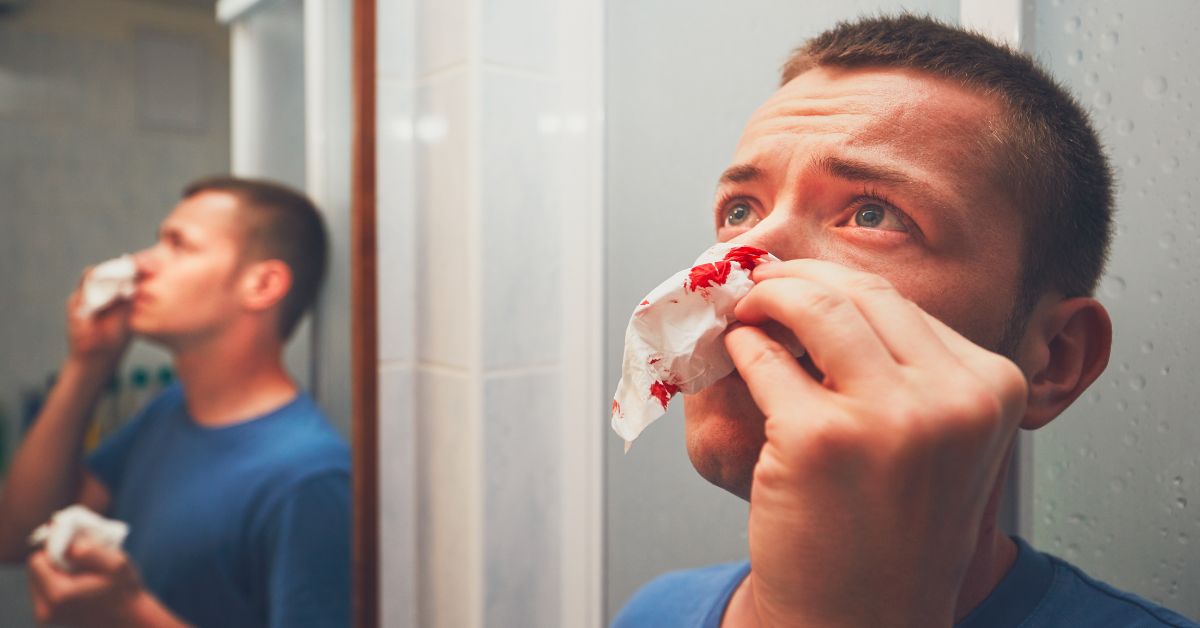Picture this: You stumble upon a tiny white rock buried in your teen’s jeans pocket during a routine laundry run. First, there’s denial. Maybe it’s crushed candy?
But a braver second glance reveals the truth – your loved one has cocaine. This reality isn’t easy, but accepting it is an important first step. With the right tools and insights, overcoming addiction is not only possible but achievable.
Let’s take a step into the world of cocaine addiction in teens. Along the way, you’ll learn valuable insights, understand how to approach the situation and find the courage to take action. Together, we can overcome the fear and pain of addiction and create a better future. Let’s do this!
Understanding Why Teens Use Cocaine
It can be hard to see your child struggling with addiction, especially with a drug like cocaine.
We’ll take a closer look at the reasons behind teen addiction to cocaine. Hopefully, it’ll help you understand this common drug teens use and how to better help your teen.
Why Is Cocaine Popular Among Teens?
Cocaine is a potent drug that affects brain chemistry and creates a strong addiction. Users experience an intense high that involves a rush of euphoria and feeling invincible.
- The high from cocaine can make users feel supercharged, euphoric, and confident.
- The intense cocaine high can lead to a severe crash, causing increased cravings.
Not only that, but the social factors of drug use also play a significant role, such as the pressure to conform and the urge to rebel against societal norms.
The Complexities of Teen Cocaine Use
Drug addiction is not simply an isolated issue among teenagers. It is a complex problem connected with their mental, emotional, and social development.
- Mental health: Mental health issues, like depression or anxiety, sometimes accompany teen drug use.
- Peer Pressure: Wanting to fit in or be accepted by certain groups may push your teen to abuse drugs.
- Academics: Teens can use drugs as a coping mechanism due to stress from not understanding certain subjects or achieving good grades.
- Family Dynamics: Dysfunctional patterns and weak family bonds can lead to addictive behaviors.
Recognizing the Signs of Cocaine Abuse

As a parent, it is essential to be aware of the possible symptoms of teenage cocaine use. You should go beyond the obvious signs of drug abuse and be alert to subtler physical, behavioral, and emotional symptoms.
Awareness of these signs can help you to get help, effectively deal with your addicted loved one, and protect them from the harmful effects of cocaine.
Identifying Physical Signs
Cocaine leaves its mark on anyone who uses it. Here are some physical signs to look out for:
- Nosebleeds: The drug is often snorted, leading to spontaneous nosebleeds, a constantly runny nose or sniffling.
- Dramatic weight loss: Cocaine suppresses appetite, leading to weight loss in a short span.
- Dilated pupils: The drug causes pupils to expand, making their eyes look brighter and wider.
- Scratching or picking their skin: Cocaine can cause users to feel like bugs are crawling on their skin.
Alert to Behavioral Changes
Changes are also reflected in someone’s behavior. By observing your teen, you may notice these subtle shifts:
- Mood swings: Drastic mood changes from extreme happiness to intense irritation.
- Loss of interest: Loss of interest in hobbies, sports, and activities they once enjoyed.
- Isolation: Withdraw from activities with family and friends, spending an unusual amount of time alone.
- Poor performance: Drop in their grades, work ethics, or general motivation towards tasks.
WATCH: Free, confidential workshop that explains how to "Love Another Way"
Understanding Emotional Signs
Addiction can not only harm someone’s physical health but also their emotional well-being. Watch out for these symptoms of cocaine addiction:
- Aggression: Unusual anger, irritability, or frequent arguments.
- Paranoia: They might exhibit distrust in others, seeing threats or plots where none exist.
- Anxiety or depression: Using cocaine can cause emotional swings that can lead to feelings of sadness, restlessness, or worry.
How Can You Help Your Teen?

Just like confronting an alcoholic family member, it’s tough to recognize that your teen is abusing cocaine. Keep in mind to always approach them with compassion and understanding.
- Choose an appropriate time: Talk to them when sober and well-rested.
- Be collected: Stay calm during the conversations. If you become angry or accuse your loved one of something, they may become defensive and less likely to listen to you.
- Use “I” statements: Saying “I am worried about the changes I see in you” is less aggressive than “You are ruining your life.”
- Express love: Remind them that your love is unconditional and you care about their well-being.
- Discuss, don’t accuse: Have a conversation where both voices are heard instead of a trial where judgments are made.
- Draw limits: Make it clear what behavior is unacceptable. Establish firm but fair consequences for crossing boundaries.
Remember that these tips are not a substitute for medical intervention. Your loved one should receive both means of support – your sincere care and specialized addiction treatment.
NEW: How to make the shift from "Mom Code" to prioritizing your own well-being
Unpacking Cocaine Addiction Treatment
When your words are not enough to help your loved one quit cocaine use, you should consider a cocaine abuse treatment program. It’s essential to seek a personalized and multifaceted approach because effective treatment plans are not one-size-fits-all.
It should encompass a blend of:
- Individual therapy: Teens can discuss their feelings and struggles in a safe, confidential environment.
- Group therapy: Sharing experiences with others in recovery can foster mutual understanding and reduce feelings of isolation.
- Rehab: Addiction treatment aims to stop drug dependency, manage signs and symptoms of relapse and promote long-term sobriety.
- Medication: In some cases, medication can be used to manage withdrawal symptoms or concurrent mental health issues.
The Final Step: Overcoming Cocaine Use

Watching a loved one, especially a young person, struggle with cocaine addiction can be heartbreaking. It’s essential to understand that addiction is a chronic illness, but recovery is possible.
By choosing the proper support, education, and treatment options, teenagers can overcome their addiction and lead a fulfilling life. We should never underestimate the resilience and strength of young people. They can beat this illness with the right resources. Although addiction is a challenging battle, it can be won.
Frequently Asked Questions About Teen Cocaine Addiction
What are the examples of adolescent addiction?
Substance use and extreme fixations are examples of adolescent addiction. Specifically, we can talk about addiction to marijuana, cocaine, alcohol, or prescription drugs. Also, it can manifest in excessive gaming, internet use, or compulsive eating.
What are the problems with youth addiction?
Youth addiction can lead to many problems, including physical and mental health issues, academic struggles, and legal troubles. It can cause severe health complications, poor academic performance, and antisocial behavior. Addiction can also strain relationships with family and friends, increasing the likelihood of developing lifelong addiction issues and psychiatric disorders.
SEE: Find out why your boundaries keep getting crossed (and how to reinforce them)
What are the 3 types of addiction?
There are three main categories of addiction: substance addiction, impulse control disorders, and behavioral addiction. Substance addiction includes drug dependency. Impulse control disorders comprise addictions to activities such as gambling, fire-setting, or stealing. Behavioral addiction refers to excessive time spent on everyday activities, like gaming, eating, or internet use.
What are the causes of the risk of addiction during adolescence?
Adolescence is a high-risk period for addiction due to brain development, environmental influences, and social pressure. These factors make adolescents more susceptible to substance abuse. Stress, anxiety, and trauma can also push them towards drug use.
